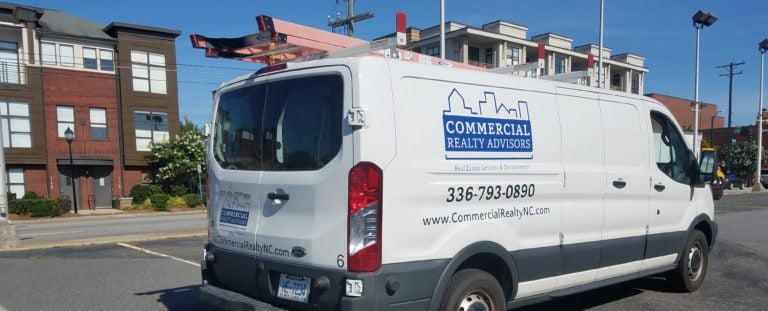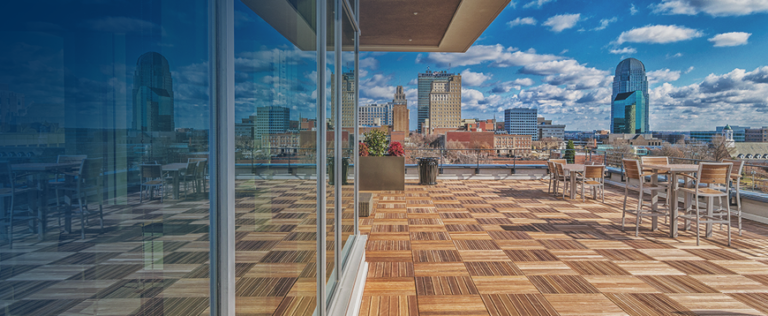The Warehouse Explosion – Hottest Commercial Investments During Pandemic
Before the onset of the COVID-19 pandemic, we already saw the decline in the health of brick-and-morter retailers as the popularity of online shopping has grown. Malls have been closing, retailers suffering, and shopping centers have experienced high turn-over, an increase in the number of FOR LEASE signs in windows of previously successful stores. The shift to e-commerce has created more jobs between 2007 and the end of 2019 than brick and mortar retailers lost, according to Michael Mandel, Chief Economic Strategist at the Progressive Policy Institute. Consumer demand for e-commerce has become insatiable as communities were instructed to shelter in place. Even consumers previously wary of shopping on their computers and phones began to embrace the convenience and safety of shopping online. And this trend will continue.
Some businesses, like Amazon, Target, Costco and Walmart were able to quickly respond to the additional business by adding required warehouse space. Businesses that weren’t ready to make the quick transition to put greater emphasis in online business suffered, and recently big store brands like Neiman Marcus, JCrew, Brooks Brothers, Pier 1, Macys and JCPenney filed for chapter 11.
This growing need to find industrial and warehousing space requires companies to become aggressive and creative. The ability to flex with consumer demand will make or break businesses moving forward, and companies that have the capability to ship from multiple locations across the country–to get as close to the end consumer as possible–will benefit from shorter delivery times and lower shipping costs. Real estate firm JLL predicts an industrial space demand of an additional 1 billion square feet over the next five years. The need is expected to be met with a mix of traditional industrial sectors outside large urban and suburban areas and space close to–or part of–now vacated shopping centers. Although warehousing rent, historically lower in cost than retail, has increased more than 1/3 over the past 3 years, retail rent has decreased, closing the gap between the two.
Right now, Amazon is the most active company to gobble warehouse space since the pandemic began, and occupies the most small and medium-sized buildings, according to Abby Corbett with CoStar. However, Amazon still only occupies 10% of all warehousing in the second quarter of 2020. Of all the latest industrial leases, 60% are smaller warehouses (less than 200,000 SF) occupied by health and medical, light manufacturing and e-commerce companies needing last mile fulfillment (located 6-9 miles from the final destination).
With the ongoing demand for additional warehouse space, industrial real estate has been minimally affected by the pandemic. After the second quarter of 2020, CoStar reports the industrial sector is the most resilient segment of the commercial real estate business. Ongoing requirements for distribution, fulfillment, data center space and cold storage (an industrial warehousing area identified as high growth potential) continue to fuel space demands. With a growing need to increase pharmaceutical capabilities in the US, cold storage has become an important part of the supply chain. Additionally, according to a recent MarketFlash report from commercial real estate firm, CBRE, approximately 95% of all food–either produced in or imported to–the US must go through third-party distribution centers before reaching consumers. In CBRE’s 2019 report, “Food on Demand Series: Cold Storage Logistics Unpacked,” they estimate the need for 75-100 million SF of freezer/cooler space to meet the post-pandemic demand for food storage.
To remain competitive in this new world, retailers will also need to adjust by either expanding their current square footage to accommodate on-site shipments, or finding new networks of small warehouses for quick delivery, especially in more densely populated areas.
In terms of investor returns, Nareit reports that every major real estate sector yielded negative year-to-date returns since the Pandemic began. Multifamily experienced a 26% loss, office declined 28% and retail loss was 48%, while industrial investments dropped only 10%. According to a Q1 2020 survey of Piedmont Triad building permits by themarketedge.com, Forsyth and Guilford counties (with the highest Triad populations) were down 21% and 5% respectively vs. 2019, while Randolph and Davie counties reflected “staggering growth”, up 347% and 338% over the previous year. Not only are real estate prices lower in those rural counties, they are also situated right off major highways, a short drive to other large NC urban metropolitan regions (Charlotte and the Research Triangle of NC).
Davie Industrial Center Phase 1 Exterior
In Davie county, the first phase of a new industrial development has been completed and is now available for lease. 0 Gildan Drive in Mocksville, part of Davie Industrial Center, is a brand new ±324,000 SF building zoned GI (General Industrial), and is equipped with an ESFR sprinkler system. This building is constructed of insulated precast concrete walls and steel and includes 52 dock high doors, 2 drive-in doors, 50’ x 54’ bays with a 60’ staging bay. 0 Gildan Drive is build-to-suit, and could easily be adapted to accommodate cold storage. Davie Industrial Center’s proximity to major highways provides access to half the country within a day’s drive.
This state-of-the-art facility is fully customizable to suit the needs of any business. 0 Gildan Drive in Davie Industrial Center is a sweet spot, literally and metaphorically. For more information, visit davieindustrialcenter.com or call us at 336-793-0890 to schedule a walk-through.






 for additional storage, whether for medical equipment, dry goods or perishable groceries, will require creative solutions from commercial real estate firms. In the Triad of North Carolina there is ample land available for warehouse development, empty space that can be re-purposed for warehouse needs, and existing warehouse facilities that are ready for immediate use. Commercial Realty Advisors, experienced full-service commercial real estate providers, will evaluate all opportunities to determine the best location possible – and under the most favorable terms.
for additional storage, whether for medical equipment, dry goods or perishable groceries, will require creative solutions from commercial real estate firms. In the Triad of North Carolina there is ample land available for warehouse development, empty space that can be re-purposed for warehouse needs, and existing warehouse facilities that are ready for immediate use. Commercial Realty Advisors, experienced full-service commercial real estate providers, will evaluate all opportunities to determine the best location possible – and under the most favorable terms.